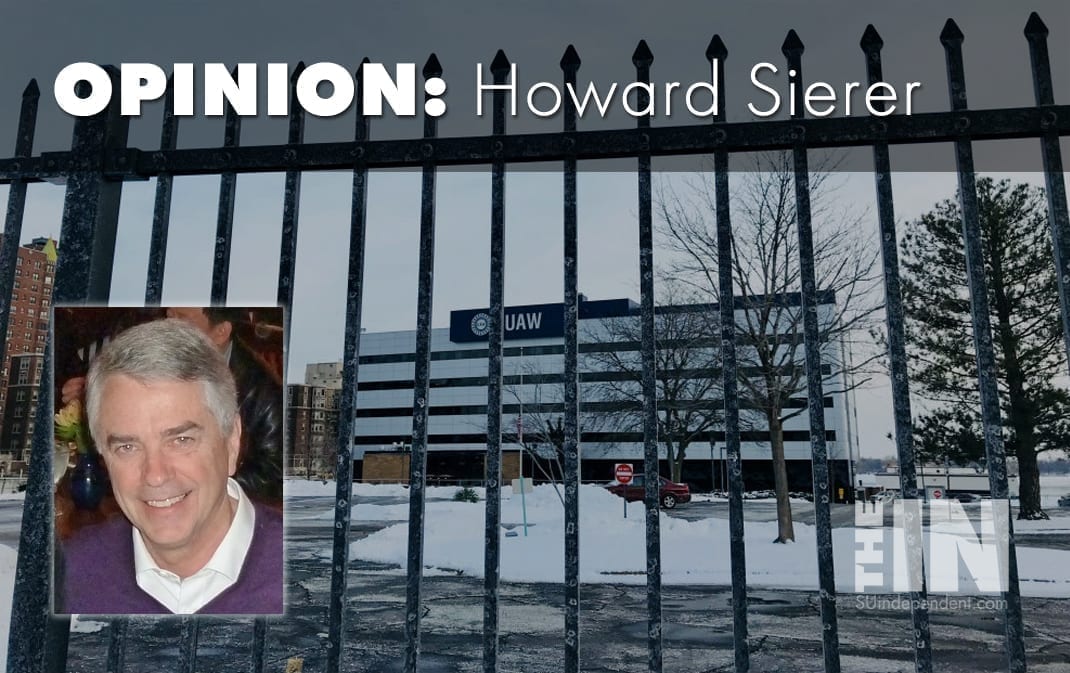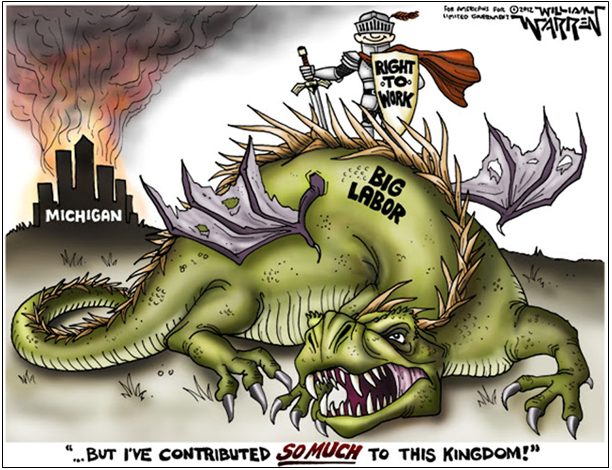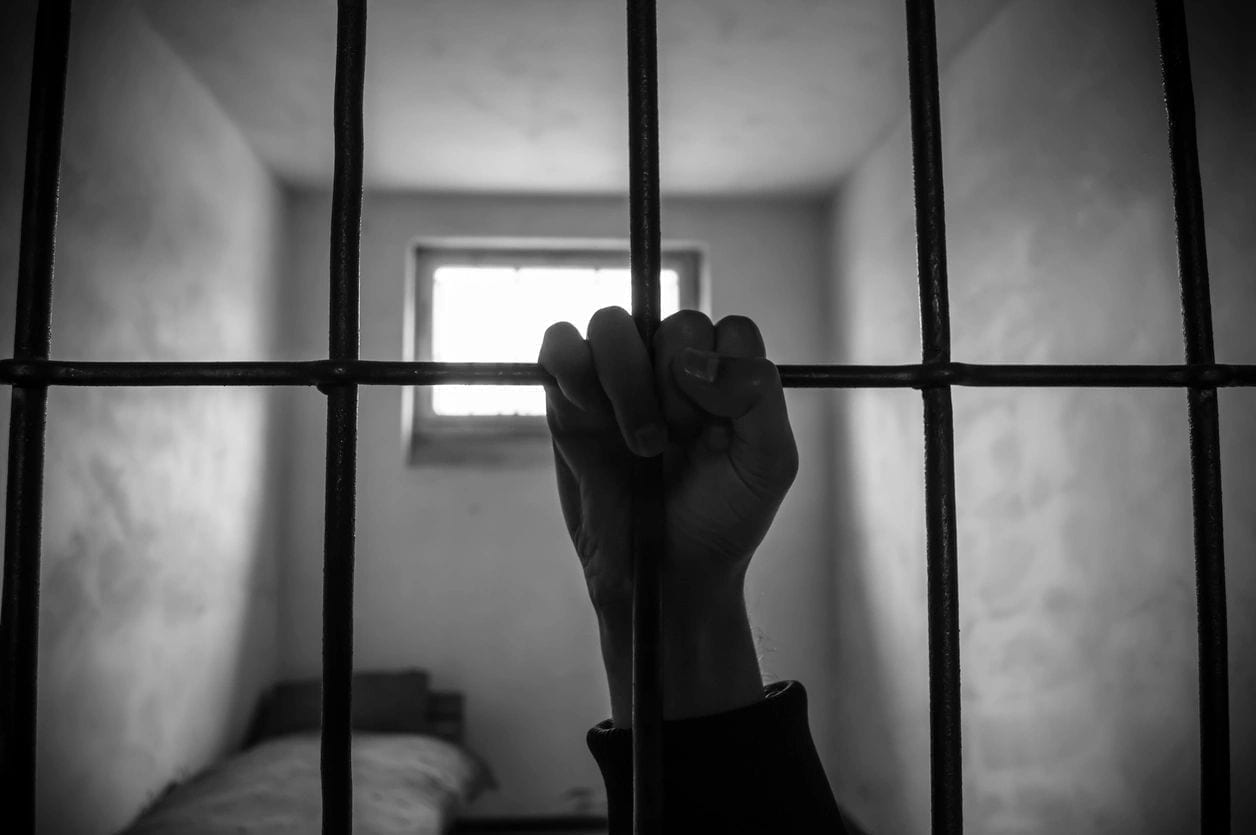
Union Corruption and Membership Losses Continue
Labor Day, instituted as a federal holiday in 1894 to celebrate labor unions, has morphed into an annual occasion to note union decline into increasing irrelevance and corruption.
According to the Federal Bureau of Labor Statistics, union headcount fell by 170,000 in 2019 with unions representing 10.3 percent of workers. That compares to almost 30 percent of workers in the 1960s and 20.1 percent in 1983.
Lack of interest in unions and their dues is explained in part by the Republican job bonanza through February of this year. Wages for all workers were booming and especially for the lowest paid. Who wanted to pay union dues when there were a million more job openings than those looking for work?
In the private sector, union representation dropped to 6.2 percent in 2020 from 6.4 percent in 2019. Even in manufacturing, long a union stronghold, union members now make up only 8.6 percent of workers.
In decades past, unions had been able to extort exorbitant wages from companies that had massive investments in plant and equipment like steelmakers, auto companies, and airlines. Those companies faced financial ruin if shuttered by an extended labor strike.
But unions overplayed their hands, driving a number of well-known companies into bankruptcy (remember Bethlehem Steel or Pan American Airlines?), clearing the way for foreign companies to serve our markets. As a result, millions of union members lost their jobs.

Even public-sector union membership declined in 2019, dropping to 33.6 percent of workers. In a previous column, I called public employee unions “enemies of the state.” The reason is clear: public employee unions negotiate with the very people their massive campaign contributions help elect.
Public officials who accept kickbacks for awarding contracts go to jail. Public officials who accept campaign contributions from the public workers they’ve enriched get re-elected.
Declining interest in union membership can be attributed in part to union leadership corruption. Since January 2019, over 60 union officials and staffers have been convicted or pleaded guilty to union-related crimes. Here’s a sampling:
- Two former presidents of the United Auto Workers, Gary Jones, and Dennis Williams, have been charged with embezzling union funds
- Thirteen other UAW officials have pleaded guilty to using union funds for “lavish entertainment and personal spending,” including “golf outings, high-end booze, spa services, amusement-park tickets, luxury condominiums and villas, and meals at pricey restaurants”
- John Romero, president of the United Industrial Services Workers of America, was found guilty of embezzling nearly $800,000 from the union’s health plan
- Keith Ludlum, former United Food and Commercial Workers International Union president, pleaded guilty to embezzling more than $200,000 in union funds
- Harold Schaitberger, president of the International Association of Firefighters, and former treasurer Thomas Miller were accused earlier this month of illegally taking millions from the union’s pension fund
 One in five audits of union finances around the country, result in criminal charges. Can you imagine how Democrats would react if 20 percent of business audits resulted in criminal investigations?
One in five audits of union finances around the country, result in criminal charges. Can you imagine how Democrats would react if 20 percent of business audits resulted in criminal investigations?
There is another type of union that has come under intense public scrutiny lately: police unions. While no financial scandals have surfaced, unions protecting officers accused of misconduct are in the spotlight as a result of several high-profile police shootings.
Stephen Rushin of the Duke University law faculty analyzed 178 police union contracts and concluded that a “lack of corrective action in cases of systemic officer misconduct is, in part, a consequence of public-employee labor law.”
Rushin goes on to note that the average police department gives officers up to four layers of appellate review. A quarter of all officers fired for misconduct between 2006 and 2017 were reinstated, usually by arbitrators.
Police officers and all Americans ought to be free to join unions if they believe membership will benefit them. But we need union reforms that protect union members from misuse of their dues and public sector union reforms that protect the public from the inherent conflicts of interest when public employee unions elect their negotiating partners to public office.
Viewpoints and perspectives expressed throughout The Independent are those of the individual contributors. They do not necessarily reflect those held by the staff of The Independent or our advertising sponsors. Your comments, rebuttals, and contributions are welcome in accordance with our Terms of Service. Please be respectful and abide by our Community Rules. If you have privacy concerns you can view our Privacy Policy here. Thank you!
Click here to submit an article, guest opinion piece, or a Letter to the Editor




